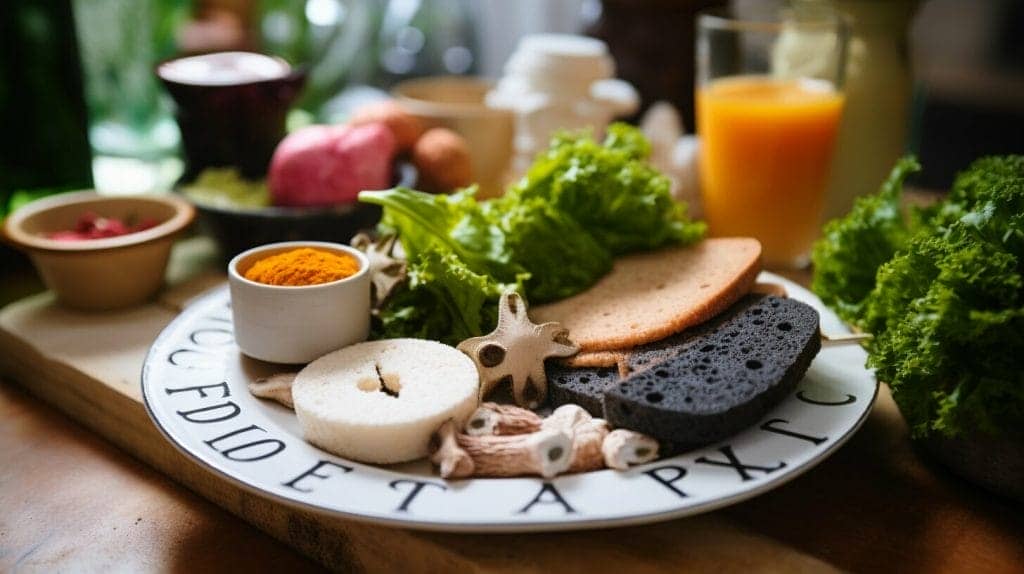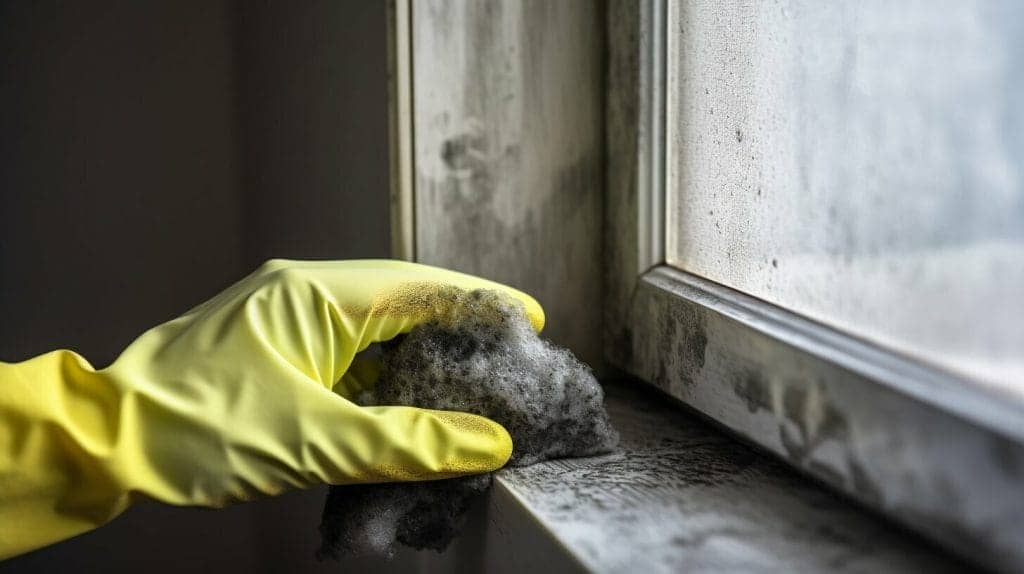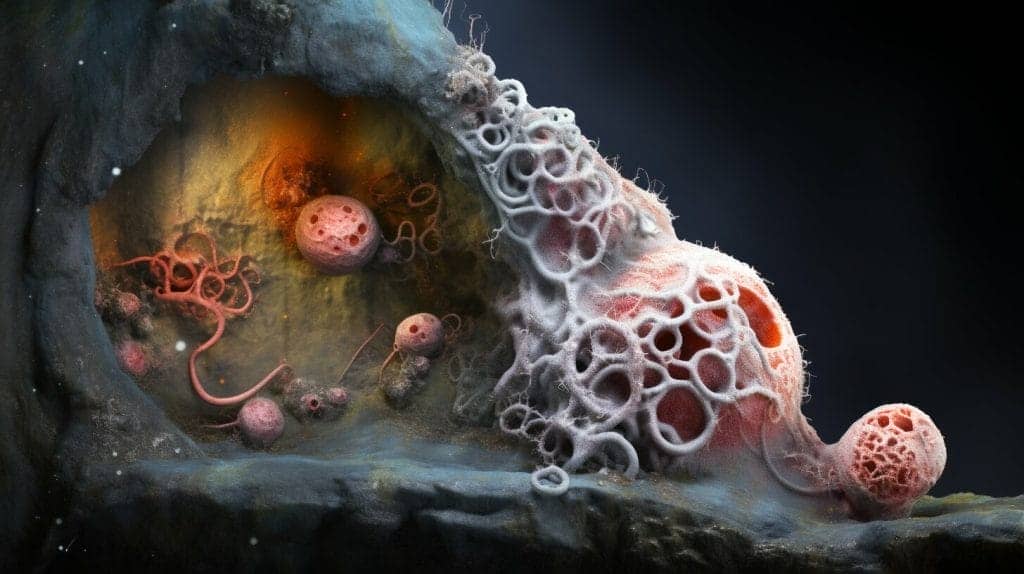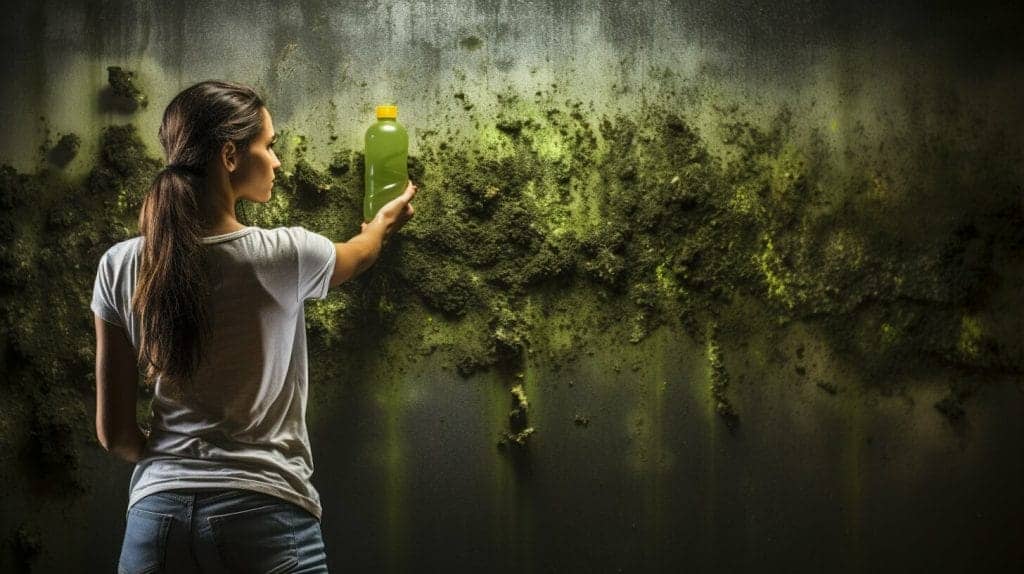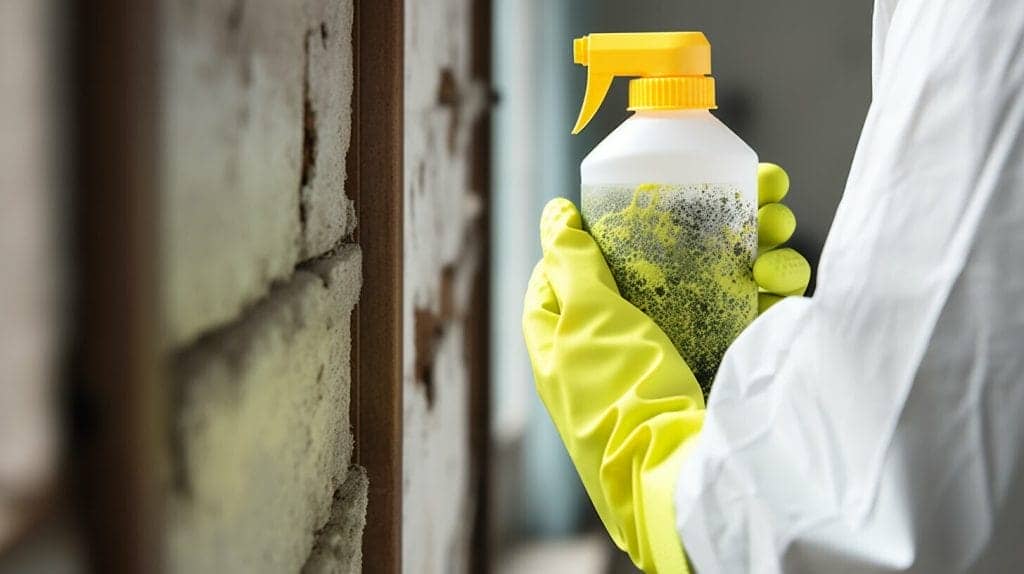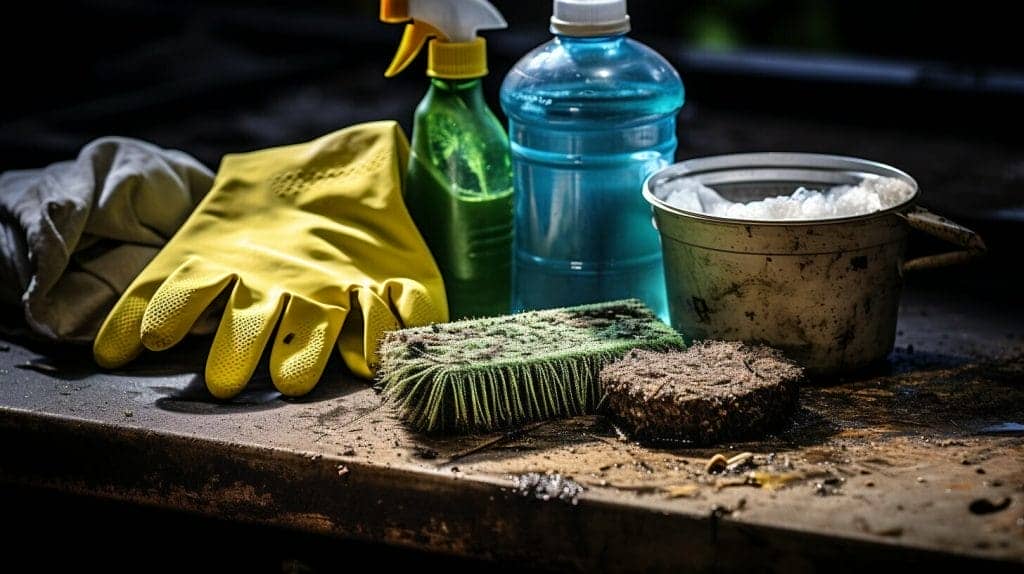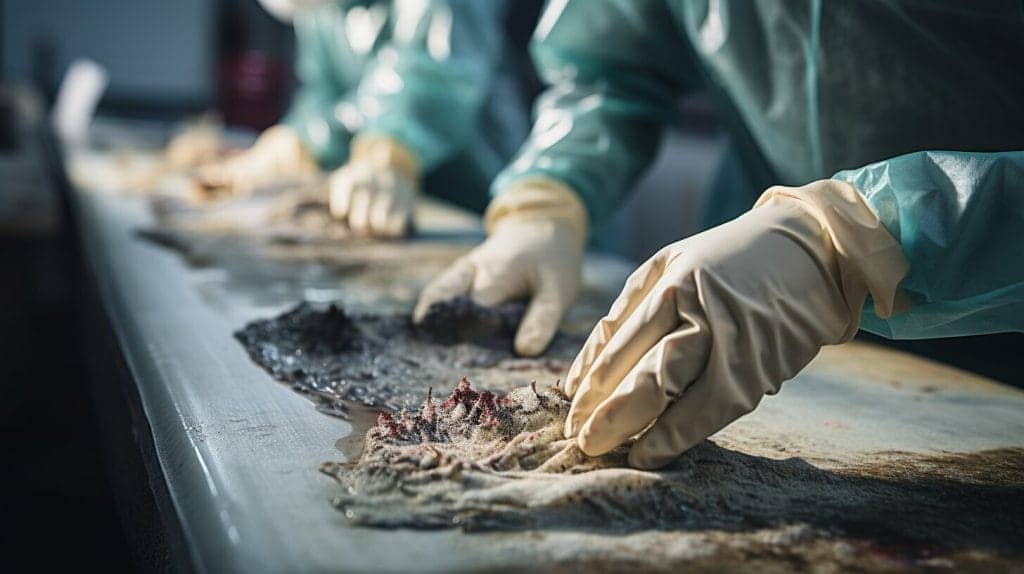Mold toxicity is a prevalent issue that affects individuals worldwide. Exposure to mycotoxins, which are toxic compounds produced by certain molds, can lead to various health complications. While medical treatment is essential in managing mold-related illnesses, following a proper diet can also play a crucial role in managing symptoms and promoting healing. It is imperative to be aware of the essential dietary recommendations for individuals dealing with mold toxicity.
Key Takeaways:
- Foods to avoid with mold toxicity can help minimize mycotoxin exposure and prevent further complications.
- An anti-mold diet can aid in symptom alleviation and support the body’s detoxification process.
- A holistic approach to managing mold toxicity emphasizes the significance of proper diet and tailored treatment.
Understanding Mold Toxicity and Its Impact on Health
Mold toxicity, also known as mycotoxicosis, is a health condition caused by exposure to mold and mycotoxins, which are toxic byproducts produced by certain types of mold. When people come in contact with mold spores, it can cause a range of health effects, from minor allergies to serious illnesses.
According to the Centers for Disease Control and Prevention (CDC), exposure to mold can cause symptoms such as nasal stuffiness, coughing, wheezing, and irritation of the eyes, throat, and skin. Prolonged exposure to mold and mycotoxins can lead to significant health issues, including respiratory problems, neurological symptoms, and even cancer.
It is essential to be aware of the potential risks of mold exposure and take necessary precautions to prevent health complications. Understanding the impact of mold toxicity on health is the first step to managing and preventing further exposure.
The Role of Diet in Mold Toxicity Management
One crucial aspect of managing mold toxicity is through following a proper diet. A mold toxicity diet involves avoiding certain foods to minimize mold exposure and promote healing, while incorporating foods that support the body’s detoxification process.
An anti-mold diet is highly recommended to alleviate symptoms and improve overall health. This type of diet eliminates foods that are prone to mold growth, such as grains, dairy, sugar, alcohol, and processed foods. Instead, it emphasizes fresh, organic, whole foods, such as fruits, vegetables, lean proteins, and healthy fats.
Furthermore, a mold sensitivity diet may be necessary for individuals who have developed a sensitivity to mold or mycotoxins. This type of diet is similar to an anti-mold diet, but may also prohibit additional foods, such as peanuts, corn, and soy.
A proper mold toxicity diet is an essential component in managing mold toxicity and promoting optimal health. In addition to following a tailored diet plan, consulting with a healthcare professional is recommended to ensure appropriate care and monitoring during the detoxification process.
Foods to Avoid with Mold Toxicity
When dealing with mold toxicity, it is essential to be mindful of the foods consumed, as certain foods can worsen symptoms and increase mycotoxin exposure. Below is a comprehensive list of foods to avoid:
| Foods to Avoid | Why to Avoid Them |
|---|---|
| Cheese | Can contain mold spores and mycotoxins |
| Cured meats | Often contain mold and may produce mycotoxins during processing |
| Wheat products | May contain mold and mycotoxins due to improper storage and processing |
| Sugar and artificial sweeteners | Can weaken the immune system and promote mold growth |
| Alcohol | Can worsen symptoms and impair the body’s detoxification process |
| Coffee and tea | May contain mold and mycotoxins and can disrupt hormone balance |
| Processed and packaged foods | May contain preservatives and additives that can trigger inflammation and worsen symptoms |
“Avoiding these foods is crucial in reducing mold exposure and promoting a healthier, more balanced diet.”
It is important to note that while some foods may be safe to consume in small amounts, they should be avoided altogether in cases of severe mold toxicity or sensitivity. Consultation with a professional, such as those at Oasis Medical Institute, can provide guidance on a custom-tailored diet plan for optimal mold detoxification and long-term well-being.
Common Culprits: Mold-Prone Foods to Stay Away From
When managing mold toxicity, it’s crucial to avoid foods that are more vulnerable to mold growth. Examples of common culprits include:
| Food Group | Foods to Avoid |
|---|---|
| Grains and Cereals | Wheat, barley, rye, oats, cornmeal, breakfast cereals |
| Nuts and Seeds | Peanuts, cashews, pistachios, sunflower seeds, pumpkin seeds |
| Fruits | Soft fruits, such as raspberries, strawberries, and blueberries |
| Dairy | Most cheeses, sour cream, buttermilk, yogurt, kefir |
| Beverages | Alcoholic beverages (especially wine and beer), coffee, tea, fruit juices |
It’s important to note that even foods that are not visibly moldy can still contain mycotoxins. That’s why it’s crucial to avoid all foods that are mold-prone to minimize exposure and reduce the risk of mycotoxicosis.
Managing Mold Toxicity: Holistic Approaches
When dealing with mold toxicity, it is important to consider holistic approaches to treatment. While conventional medicine has its place, a holistic approach emphasizes the interconnectedness of the mind, body, and spirit in achieving optimal health.
Holistic treatments for mold toxicity may include:
- Dietary changes: A mold toxicity diet can help reduce inflammation, boost the immune system, and aid in the body’s detoxification process.
- Natural supplements: Certain supplements, such as activated charcoal and bentonite clay, can help bind to toxins and eliminate them from the body.
- Mind-body practices: Practices such as meditation, yoga, and acupuncture can help reduce stress levels and promote healing.
- Environmental modifications: Identifying and removing sources of mold in the home or workplace can aid in reducing mold exposure.
At the Oasis Medical Institute in Tijuana, MX, a holistic approach is taken to mold toxicity treatment. Led by Dr. Francisco Contreras MD, the integrated approach combines conventional medicine with evidence-based holistic treatments.
Oasis Medical Institute: A Leader in Mold Toxicity Treatment
For those seeking a reputable facility for mold toxicity treatment, Oasis Medical Institute stands out as a leader in the field. Under the guidance of Dr. Francisco Contreras MD, the facility offers a comprehensive and holistic approach to managing mold-related illness.
At Oasis Medical Institute, patients can expect personalized attention and tailored treatment plans to address their specific symptoms and concerns. With a focus on both traditional and alternative medicine, the facility incorporates a range of therapies to support the body’s natural healing processes.
One key aspect of treatment at Oasis Medical Institute is their emphasis on dietary support. The facility recognizes the significant role of diet in managing mold toxicity and incorporates specific recommendations to complement their holistic approach. Patients receive guidance on following a mold-free or anti-mold diet to promote detoxification and reduce mycotoxin exposure.
Patients also benefit from the facility’s integrated approach to medicine for mold toxicity. With a combination of conventional treatments, such as medication and surgery, and holistic therapies, patients receive a comprehensive treatment plan that addresses their unique needs.
Overall, Oasis Medical Institute offers a top-tier facility for those seeking effective and personalized mold toxicity treatment. With a focus on holistic care and dietary support, patients can expect expert guidance and results-driven treatment options.
The Role of Diet in Mold Toxicity Management
When it comes to managing mold toxicity, diet plays a crucial role. An anti-mold diet can help alleviate symptoms and support the body’s detoxification process. At Oasis Medical Institute, dietary support is an integral part of their holistic approach to mold toxicity treatment.
Patients receive specific dietary recommendations tailored to their individual needs, aiding in mold detoxification and promoting overall wellness. The program incorporates a mold-free diet and mold sensitivity diet, which helps prevent mycotoxicosis and minimizes mold exposure.
The Importance of Seeking Professional Advice: Booking a Consultation
To effectively manage mold toxicity, seeking professional advice is crucial. Every individual’s situation is unique and requires personalized treatment. Booking a consultation with a reputable facility like Oasis Medical Institute is the first step toward holistic Mold Toxicity treatment.
During the consultation, the medical team will conduct a thorough evaluation of the patient’s symptoms and medical history to create a tailored treatment plan that may include diet modifications, natural supplementation, and other holistic treatments. The team at Oasis Medical Institute has extensive experience in mold toxicity treatment and will provide comprehensive support to help individuals achieve optimal health.
The Journey to Mold-Free Living: Your Path to Recovery
Recovering from mold toxicity is a journey that requires dedication and commitment to a mold-free lifestyle. To achieve optimal results, it’s essential to follow a comprehensive treatment plan that includes proper mold detoxification, dietary changes, and education on mycotoxin exposure and symptoms. Here are the key steps on the path to mold-free living:
Mold Detoxification
The first step is to rid your body of mycotoxins. This requires a holistic approach, incorporating treatments such as infrared sauna therapy, intravenous vitamin C, and colon hydrotherapy to support your body’s detoxification process. The Oasis Medical Institute offers an integrated approach led by Dr. Francisco Contreras MD, that combines conventional and alternative medicine to promote healing.
Dietary Changes
Following a focused diet is crucial in minimizing mycotoxin exposure and promoting overall health. An anti-mold diet involves avoiding certain foods such as dairy, gluten, and sugar, and incorporating foods that support detoxification, such as leafy greens, garlic, and cilantro. At the Oasis Medical Institute, their mold-free diet supports the holistic approach to mold toxicity treatment and aids in detoxification.
Educational Awareness
It’s important to be aware of mycotoxin exposure and symptoms to prevent further health complications. Education is key in understanding mold toxicity and how to maintain a mold-free lifestyle. At the Oasis Medical Institute, patients receive comprehensive education on mycotoxin exposure and avoidance, ensuring they have the knowledge to prevent future exposure.
By following these steps on the path to mold-free living, individuals can achieve a healthier lifestyle and minimize the risks associated with mold-related illness. With the support of the Oasis Medical Institute, individuals can take control of their health and embark on a journey to mold-free living.
Living a Mold-Free Life: Long-Term Strategies and Maintenance
Once the initial mold detoxification process is completed, it is important to maintain a mold-free lifestyle to avoid a recurrence of symptoms and potential health risks. Below are some strategies for long-term maintenance:
- Regular Cleaning: Regular cleaning of your living space is critical for preventing mold growth. The Environmental Protection Agency recommends cleaning surfaces with soap and water and drying them completely. Consider using mold-resistant paints in areas prone to moisture such as bathrooms and kitchens.
- Avoidance of Moldy Foods: It is important to continue avoiding moldy foods to reduce mycotoxin exposure and prevent the recurrence of symptoms. Stay away from foods that are susceptible to mold growth like dairy products, grains, and nuts. Discard any moldy food immediately.
- Proper Ventilation: Proper ventilation of your living space is critical for preventing humidity and moisture buildup that can lead to mold growth. Open windows and doors, use exhaust fans, and consider a dehumidifier to maintain proper humidity levels.
- Consistent Medical Check-ups: Consistent medical check-ups with a healthcare provider who specializes in mold toxicity can help identify any relapse of symptoms and potential health risks.
Following these strategies can help individuals maintain a mold-free lifestyle and prevent recurrence of symptoms. It is important to commit to a long-term recovery plan for optimal health and well-being.
The Importance of Education and Awareness
It is crucial for individuals to be aware of the potential health risks associated with mold-related illness and mycotoxin exposure. Education is key in understanding the importance of following an anti-mold diet, identifying mold exposure symptoms, and taking preventive measures to minimize mycotoxin exposure.
By staying informed and knowledgeable about mold toxicity, individuals can better protect themselves and their loved ones from the potentially harmful effects of mycotoxins. They can also take proactive steps towards proper mold detoxification and long-term wellbeing.
Conclusion
Managing mold toxicity requires a holistic approach, with dietary changes being one crucial component. By avoiding mold-prone foods, following an anti-mold diet, and seeking professional advice from a reputable facility like the Oasis Medical Institute, individuals can effectively manage their mold-related illness and promote long-term well-being.
It is also important to maintain ongoing education and awareness about mycotoxins and mold exposure symptoms to better protect oneself and prevent future health complications. With dedication and diligence, individuals can embark on the journey to mold-free living and achieve a healthier, happier life.
FAQ
Q: What are the essential foods to avoid with mold toxicity?
A: To minimize mold exposure and manage symptoms, it is important to avoid foods that are prone to mold growth. Some examples include bread, cheese, cured meats, and fermented foods.
Q: How does diet play a role in managing mold toxicity?
A: Diet plays a crucial role in managing mold toxicity as certain foods can exacerbate symptoms and hinder the body’s detoxification process. Following an anti-mold diet can alleviate symptoms and support the healing process.
Q: Can you provide a list of foods to avoid with mold toxicity?
A: Sure! Some foods to avoid include peanuts, corn, wheat, sugar, alcohol, and processed foods. These foods can contribute to mold exposure and worsen symptoms.
Q: Which foods are more prone to mold growth and should be avoided?
A: Foods that are more prone to mold growth include soft fruits, bread, nuts, and dairy products. It is important to be vigilant and check for any signs of mold or spoilage before consuming these foods.
Q: What holistic approaches can be used to manage mold toxicity?
A: Holistic approaches for managing mold toxicity can include nutritional support, herbal remedies, detoxification protocols, and stress management techniques. These approaches aim to address the underlying causes of mold toxicity and support the body’s natural healing process.
Q: What is the Oasis Medical Institute’s role in mold toxicity treatment?
A: The Oasis Medical Institute is a leading facility for mold toxicity treatment, offering a holistic approach led by Dr. Francisco Contreras MD. They provide personalized treatment plans and comprehensive support to help individuals overcome mold toxicity and regain their health.
Q: How does Oasis Medical Institute incorporate dietary support into their treatment program?
A: Oasis Medical Institute incorporates specific dietary recommendations into their treatment program to complement the holistic approach. They provide guidance on a mold-free diet and offer nutritional support to aid in mold detoxification and promote overall wellness.
Q: How can I book a consultation at Oasis Medical Institute?
A: To take the first step toward managing your mold toxicity, you can book a consultation at Oasis Medical Institute by contacting their team. They will provide you with the necessary information and guide you through the process.
Q: What are the long-term strategies for maintaining a mold-free life?
A: To maintain a mold-free life, it is important to continue practicing mold detoxification techniques, following a mold-free diet, and being vigilant of potential mold exposure. Regular monitoring of your environment and adopting healthy habits can help prevent mold-related illness.
Q: Why is education and awareness important in managing mold toxicity?
A: Education and awareness are crucial in managing mold toxicity as they empower individuals to recognize symptoms, understand the risks associated with mold exposure, and make informed decisions regarding their health. Being knowledgeable about mycotoxins and mold-related illness can lead to quicker identification and proper treatment.
Dr. Francisco Contreras, MD is a renowned integrative medical physician with over 20 years of dedicated experience in the field of integrative medicine. As the Medical Director of the Oasis of Hope Hospital in Tijuana, Mexico, he has pioneered innovative treatments and integrative approaches that have been recognized globally for the treatment of cancer, Lyme Disease, Mold Toxicity, and chronic disease using alternative treatment modalities. Dr. Contreras holds a medical degree from the Autonomous University of Mexico in Toluca, and speciality in surgical oncology from the University of Vienna in Austria.
Under his visionary leadership, the Oasis of Hope Hospital has emerged as a leading institution, renowned for its innovative treatments and patient-centric approach for treating cancer, Lyme Disease, Mold Toxicity, Long-Haul COVID, and chronic disease. The hospital, under Dr. Contreras's guidance, has successfully treated thousands of patients, many of whom traveled from different parts of the world, seeking the unique and compassionate care the institution offers.
Dr. Contreras has contributed to numerous research papers, articles, and medical journals, solidifying his expertise in the realm of integrative medicine. His commitment to patient care and evidence-based treatments has earned him a reputation for trustworthiness and excellence. Dr. Contreras is frequently invited to speak at international conferences and has been featured on CNN, WMAR2 News, KGUN9 News, Tyent USA, and various others for his groundbreaking work. His dedication to the medical community and his patients is unwavering, making him a leading authority in the field.
Contreras has authored and co-authored several books concerning integrative therapy, cancer, Lyme Disease and heart disease prevention and chronic illness, including "The Art Science of Undermining Cancer", "The Art & Science of Undermining Cancer: Strategies to Slow, Control, Reverse", "Look Younger, Live Longer: 10 Steps to Reverse Aging and Live a Vibrant Life", "The Coming Cancer Cure Your Guide to effective alternative, conventional and integrative therapies", "Hope Medicine & Healing", "Health in the 21st Century: Will Doctors Survive?", "Healthy Heart: An alternative guide to a healthy heart", “The Hope of Living Cancer Free”, “Hope Of Living Long And Well: 10 Steps to look younger, feel better, live longer” “Fighting Cancer 20 Different Ways”, "50 Critical Cancer Answers: Your Personal Battle Plan for Beating Cancer", "To Beat . . . Or Not to Beat?", and “Dismantling Cancer.”

